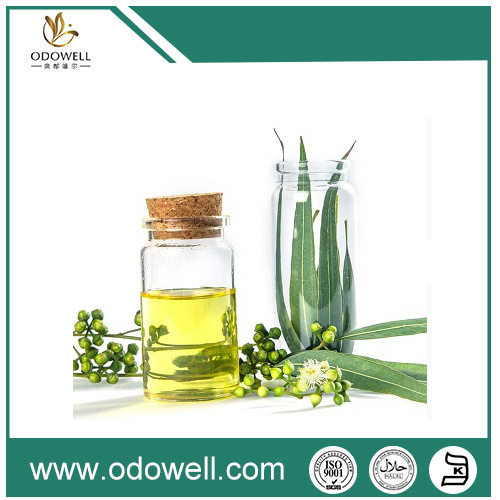Essential Oils: Nature’s Aromatic Healing Power
2025-04-10
In recent years, essential oils have gained significant popularity in wellness, aromatherapy, and beauty routines. These potent, aromatic oils are derived from plants and are believed to offer various health benefits. From boosting mood to promoting relaxation, essential oils have found their place in many households. But what exactly are essential oils, and why have they become such a significant part of natural health practices?
What Are Essential Oils?
Essential oils are concentrated plant extracts that capture the natural aroma and beneficial properties of the plant from which they are derived. These oils are typically obtained through steam distillation or cold-press extraction, ensuring that the volatile compounds responsible for the plant's scent and therapeutic qualities are preserved.
Each essential oil has a unique chemical composition, giving it distinct characteristics and therapeutic effects. For instance, lavender oil is often used for relaxation, while peppermint oil can help with digestion and energy. Essential oils are highly concentrated, so only a few drops are typically needed for them to be effective.
How Do Essential Oils Work?
The power of essential oils lies in their ability to interact with the body through the senses and skin. When inhaled, essential oils can have a direct impact on the brain, particularly the limbic system, which is responsible for emotions and memory. This is why many essential oils are known for their ability to influence mood, reduce stress, and improve mental clarity.
In addition to inhalation, essential oils can also be applied topically. When diluted and massaged into the skin, they can be absorbed and have various effects depending on the oil’s properties. For example, oils like tea tree and eucalyptus are often used for their antimicrobial properties, while oils like chamomile and lavender are known for their calming and soothing effects.
Popular Essential Oils and Their Benefits
1. Lavender Oil
Lavender essential oil is perhaps the most well-known and widely used oil. It is renowned for its calming properties and is often used to reduce stress, anxiety, and promote better sleep. A few drops of lavender oil on your pillow before bedtime can help improve sleep quality, while diffusing it in the air can create a peaceful atmosphere.
2. Peppermint Oil
Peppermint oil is invigorating and energizing, making it a popular choice for boosting focus and mental clarity. It is also known for its digestive benefits, helping to relieve nausea and indigestion. Additionally, peppermint oil can be used topically to relieve headaches and muscle tension when massaged into the temples or affected area.
3. Tea Tree Oil
Tea tree oil is widely recognized for its antimicrobial and antiseptic properties. It is commonly used in skincare to treat acne, fungal infections, and dandruff. When diluted and applied topically, tea tree oil can help cleanse the skin and prevent blemishes, making it a popular ingredient in natural beauty products.
4. Eucalyptus Oil
Eucalyptus oil is known for its ability to clear the airways and promote respiratory health. It is often used in steam inhalation to relieve symptoms of colds, coughs, and congestion. Eucalyptus oil also has anti-inflammatory properties, making it effective for soothing sore muscles and joint pain when used in massage oils.
5. Lemon Oil
Lemon essential oil has a fresh, uplifting scent and is known for its detoxifying and purifying properties. It can be used to cleanse the skin, boost energy, and enhance concentration. Lemon oil is also a natural antibacterial, making it useful for cleaning and purifying the air.
6. Frankincense Oil
Frankincense oil has been used for centuries in religious and spiritual practices due to its grounding and calming effects. It is known for its ability to reduce stress, anxiety, and promote a sense of inner peace. Frankincense is also used in skincare for its anti-aging properties, as it helps reduce the appearance of scars and fine lines.
How to Use Essential Oils
There are several ways to incorporate essential oils into your daily routine, depending on your needs and preferences:
1. Aromatherapy Diffusion
One of the most popular methods of using essential oils is through aromatherapy. Using an essential oil diffuser, you can disperse the oil’s aroma into the air, filling your space with its beneficial scent. This can help promote relaxation, boost mood, and improve focus. Simply add a few drops of your favorite essential oil to the diffuser, and let it work its magic.
2. Topical Application
Essential oils can also be applied directly to the skin, though they should always be diluted with a carrier oil (such as coconut, jojoba, or almond oil) to avoid irritation. Common areas to apply essential oils include the wrists, temples, neck, or the soles of the feet. Many people also use essential oils in homemade skincare routines, adding them to creams, lotions, or bath oils.
3. Massage
Adding essential oils to a massage oil blend is a great way to relieve tension and promote relaxation. For example, lavender and chamomile are excellent choices for a calming massage, while eucalyptus or peppermint oils are better for sore muscles and headaches.
4. Inhalation
You can also inhale essential oils directly from the bottle or use them in steam inhalation. This is particularly helpful for oils like eucalyptus, peppermint, and tea tree, which can support respiratory health.
Precautions When Using Essential Oils
Although essential oils offer numerous benefits, it’s important to use them responsibly. Because they are highly concentrated, they should always be diluted before applying them to the skin, especially if you have sensitive skin. Additionally, some oils may cause allergic reactions in certain individuals, so it’s a good idea to perform a patch test before full use.
Pregnant women, young children, and pets may be more sensitive to essential oils, so it’s important to consult a healthcare professional before using essential oils if you fall into one of these categories. Always store essential oils in a cool, dark place to maintain their potency.
Conclusion
Essential oils are powerful plant-based compounds that offer a wide range of benefits for the mind, body, and soul. Whether used in aromatherapy, skincare, or as a natural remedy for common ailments, these oils have proven to be effective, safe, and versatile. With their calming, healing, and revitalizing properties, essential oils continue to play a key role in natural health and wellness practices. As we continue to seek out more natural solutions for our health, essential oils will undoubtedly remain a popular and valuable tool for many years to come.



